Zardari warns against 'weaponisation of water'
President reaffirms Pakistan's commitment to social justice, equality and inclusive growth
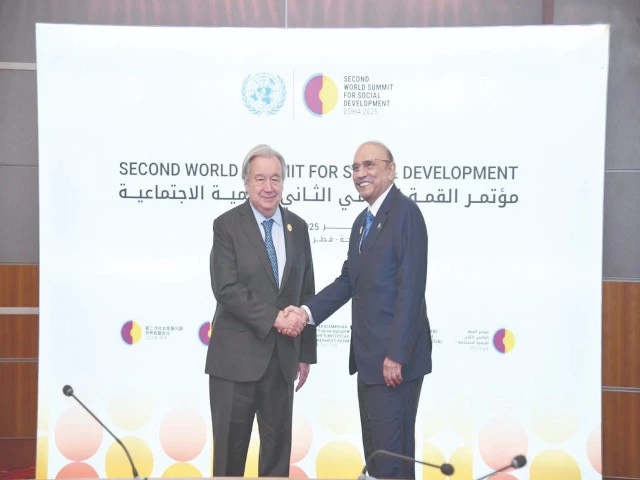
President Asif Ali Zardari on Tuesday voiced grave concern over the "weaponisation of water" and repeated "violations of the Indus Waters Treaty" by India, terming them a serious threat to the livelihoods of 240 million Pakistanis.
Addressing the Second World Summit for Social Development in Doha, the president urged the world to unite around three pillars – dignity, equality, and solidarity – emphasising global financial reforms, debt relief, equitable taxation, and expanded social protection.
The president's remarks came as world leaders at the summit adopted the 'Doha Political Declaration' - a renewed global commitment to eradicate poverty, advance equality and ensure human rights amid growing geopolitical tensions and economic disparities.
Zardari reaffirmed Pakistan's unwavering commitment to social justice, inclusive development and global solidarity, emphasising that the country's vision for sustainable growth fully aligns with the spirit of the Doha Declaration. "Pakistan remains steadfast in placing people at the centre of policy," he said.
Showcasing Pakistan's initiatives for inclusive development, he cited the Benazir Income Support Programme (BISP) as a flagship model that has empowered over 9 million families through financial assistance, healthcare and education.
The president reaffirmed Pakistan's commitment to achieving the Sustainable Development Goals (SDGs), pledging to raise literacy to 90% and ensure every child attends school within five years. He also highlighted youth empowerment initiatives such as the National Youth Internship Programme and green housing projects designed to promote climate resilience through nature-based solutions.
Outlining a roadmap to translate the Doha Declaration into concrete action, President Zardari called for unity around three guiding principles - dignity, equality and solidarity. He urged the world to pursue global financial reforms, equitable taxation, debt relief and expanded social protection systems to ensure fair opportunities for all.
"Development must begin and end with the betterment of people," he said. "We must rise above all differences to embark on a path of compassion and progress for all."
Condemning the genocide, apartheid and mass starvation in Palestine, the president reiterated Pakistan's unwavering support for the Palestinian people's right to self-determination. He also reaffirmed Pakistan's solidarity with the people of Jammu and Kashmir, calling both struggles parallel pursuits for justice and freedom.
On the sidelines of the summit, President Zardari met United Nations Secretary-General Antonio Guterres and reaffirmed Pakistan's strong support for multilateralism and the UN's central role in promoting peace, equity and shared prosperity.
He underscored the need for implementing UN Security Council resolutions on Kashmir and urged the reversal of India's unilateral and illegal actions in the disputed region. Guterres, in turn, praised Pakistan's contribution to peacekeeping operations and expressed solidarity with its efforts to combat terrorism.
During the meeting, Pakistan Peoples Party (PPP) Chairman Bilawal Bhutto Zardari raised the issue of India's suspension of water-sharing obligations under the Indus Waters Treaty, warning that such unilateral actions had created man-made disasters for Pakistan.
President Zardari also held meetings with Iraqi President Dr Abdul Latif Jamal Rashid and Tajik President Emomali Rahmon on the sidelines of the summit.
During his meeting with the Iraqi leader, both sides reaffirmed their resolve to strengthen bilateral ties and enhance trade, investment and people-to-people linkages. Zardari appreciated Iraq's cooperation in facilitating Pakistani Zaireen and acknowledged the valuable contribution of the Pakistani community in Iraq.
The Iraqi president invited him to visit Iraq after the forthcoming parliamentary elections, an invitation which Zardari accepted.
In his discussions with Tajik President Rahmon, Zardari highlighted the growing depth of Pakistan-Tajikistan relations under the 2024 Strategic Partnership Agreement. He welcomed the resumption of work on the CASA-1000 project, calling it a flagship initiative for regional prosperity, and invited Tajikistan to explore new avenues of trade and connectivity through Pakistan, including the restoration of direct flights.
The two leaders also discussed enhanced cooperation in energy, defence, and regional connectivity. Zardari commended the successful Dosti-II joint military exercise held in August 2025 and reaffirmed Pakistan's readiness to assist Tajikistan in defence capacity building.
Hosted by Qatar, the summit brought together over 40 heads of state and government, including President Zardari, along with more than 170 ministerial representatives and delegates from international organisations, youth and civil society groups.
The 'Doha Political Declaration' expands upon the landmark 1995 Copenhagen commitments, calling for gender-responsive social protection, equitable access to education and healthcare, safe digital transformation and active participation of marginalised groups in shaping policies that affect their lives.
The Declaration calls for measures to counter misinformation and hate speech that threaten democratic values. It also underscores the importance of inclusive digital transformation and meaningful participation of youth, persons with disabilities, indigenous peoples, and other marginalised groups in policy-making.
The 'Doha Solutions Platform for Social Development' was launched alongside the declaration, presenting new and newly funded initiatives by governments and global partners to address social challenges through innovative and transformative action.
UN Secretary-General Guterres described the declaration as a moral and economic imperative, while Annalena Baerbock, President of the 80th Session of the UN General Assembly, said the world no longer needed more promises but "action that changes lives and makes dignity a daily reality for all."

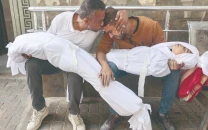
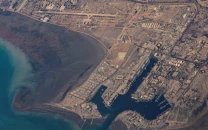
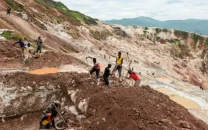
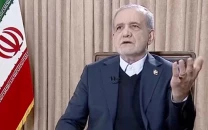
1721969212-0/BeFunky-collage]-(35)1721969212-0-208x130.webp)
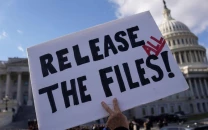












COMMENTS (1)
Comments are moderated and generally will be posted if they are on-topic and not abusive.
For more information, please see our Comments FAQ